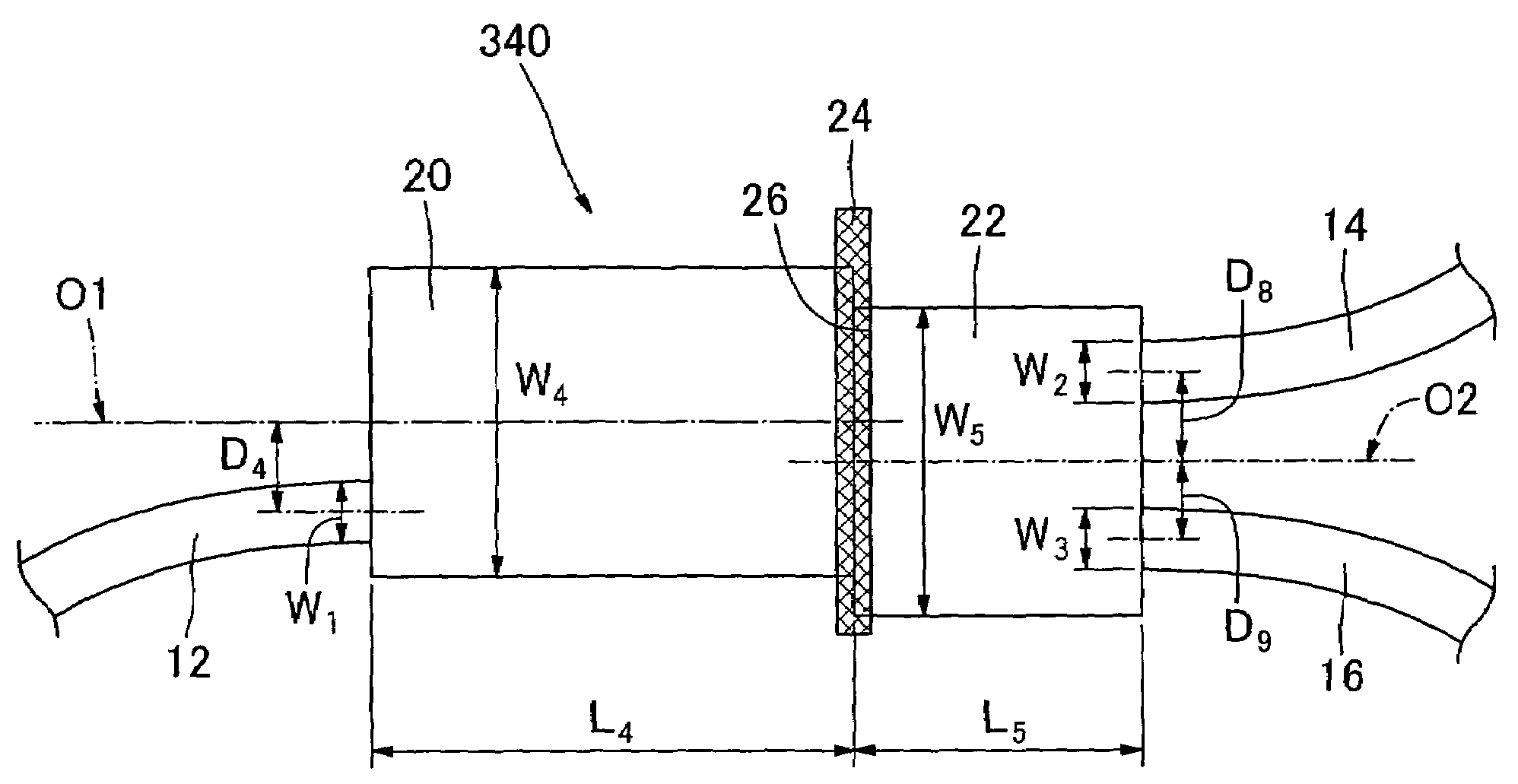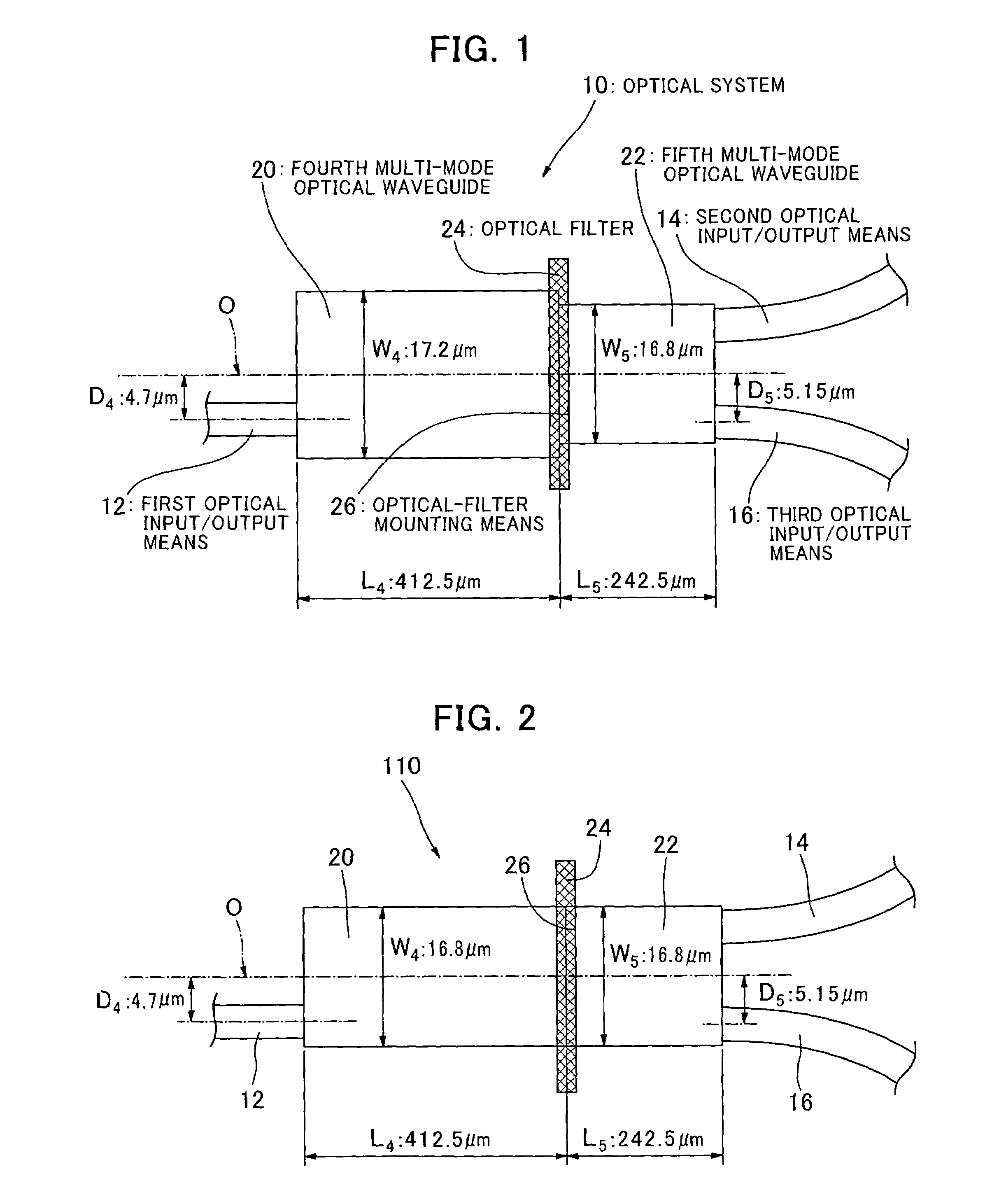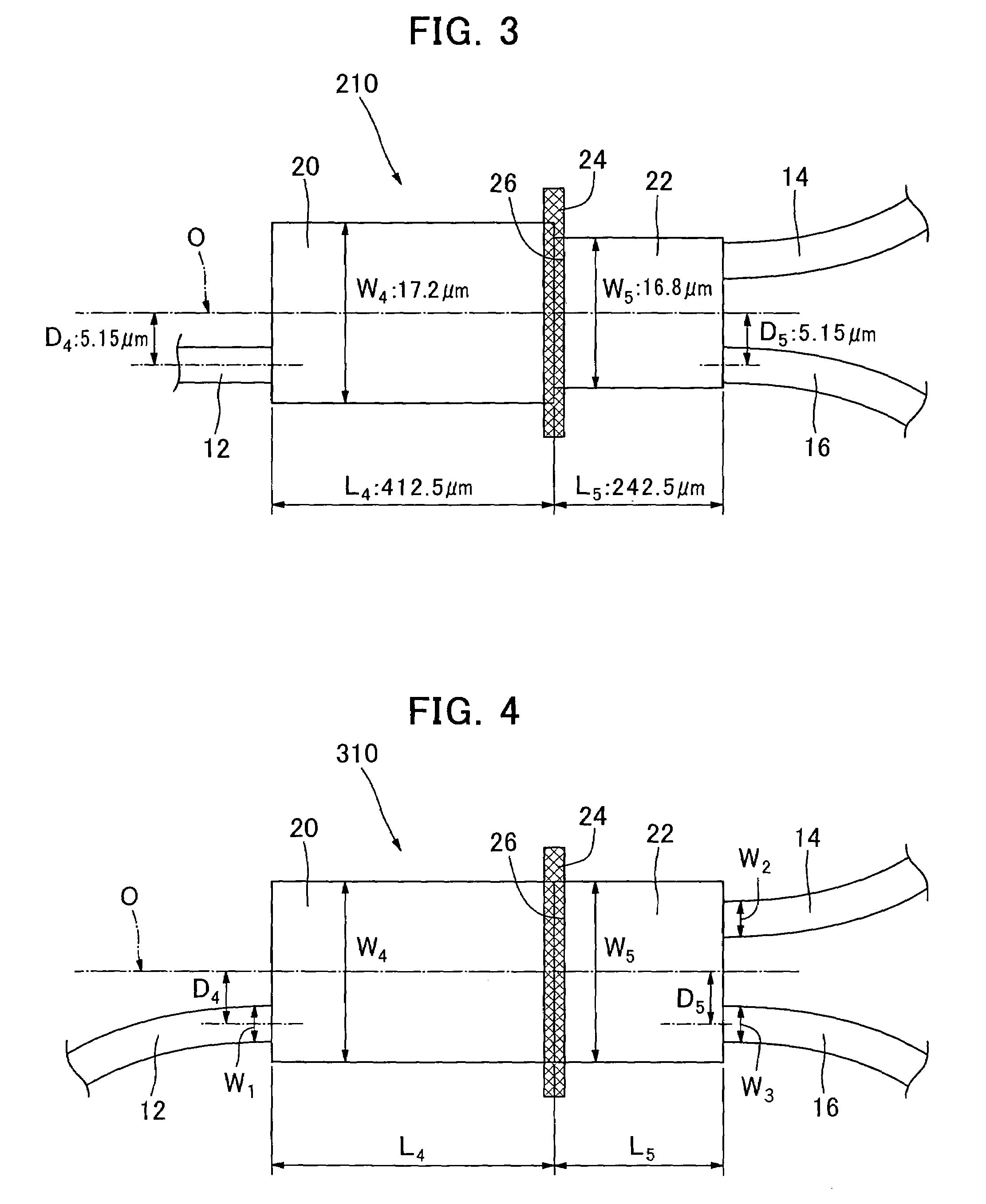Optical system with optical waveguides
an optical system and optical waveguide technology, applied in the field of optical systems with optical waveguides, can solve the problems of significant deterioration of light transmission efficiency of optical waveguides, large size of optical coupling/splitting devices, and light leakage between optical waveguides, so as to reduce the size of optical waveguides, increase the production cost of optical waveguides, and reduce the effect of siz
- Summary
- Abstract
- Description
- Claims
- Application Information
AI Technical Summary
Benefits of technology
Problems solved by technology
Method used
Image
Examples
first embodiment
[0103]In the optical system with waveguides in the prior art disclosed in the Patent Publication 3, the MMI section has a constant width. In an optical system with waveguides according to a first embodiment of the present invention, MMI sections on both sides of a thin-film optical device are designed so that respective widths of the MMI sections are different from each other.
[0104]Performance of a structure formed by simply combining the conventional MMI section with a thin-film optical device is poor, because, at a groove portion for inserting the thin-film optical device, there is no cladding in an up-down direction and a left-right direction relative to a core, which is different from the adjacent MMI sections, so that an effect of confining light or lightwave is very small. This causes perturbation of a field of light or lightwave, and this perturbation would have influence on a field configuration of convergent light at an output end of the MMI section. The first embodiment of...
second embodiment
[0125]In a second embodiment, widths of the MMI sections on the opposed sides of the thin-film optical device are the same.
[0126]Further, the input optical waveguide and the output optical waveguide in the second embodiment are asymmetric to each other relative to the axis of the MMI section, which is different from those in the prior art which define a symmetric positional relationship.
[0127]FIG. 2 shows an optical system with waveguides 110 according to the second embodiment of the present invention. The same reference numbers are attached to components of the optical system 110 of the second embodiment similar to the components of the optical system 10 of the first embodiment as the reference numbers attached to the latter components, and explanation of the former components will be omitted.
[0128]An optical system with waveguides 110 according to the second embodiment of the present invention has features in that widths W in the light-traveling direction of the fourth and fifth m...
third embodiment
[0139]FIG. 3 shows an optical system with waveguides 210 according to the third embodiment of the present invention. The same reference numbers are attached to components of the optical system 210 of the third embodiment similar to the components of the optical system 10 of the first embodiment as the reference numbers attached to the latter components, and explanation of the former components will be omitted.
[0140]An optical system with waveguides 210 according to the third embodiment of the present invention has features in that respective widths, in a direction orthogonal to a light-traveling direction, of the fourth and fifth multi-mode optical waveguides are different from each other, and in that half D5 of the distance between respective centers of the input / output ends of the second and third optical input / output means connected to the fifth multi-mode optical waveguide equals to the distance D4 between a center of the input / output end of the first optical input / output means ...
PUM
| Property | Measurement | Unit |
|---|---|---|
| widths | aaaaa | aaaaa |
| thicknesses | aaaaa | aaaaa |
| thicknesses | aaaaa | aaaaa |
Abstract
Description
Claims
Application Information
 Login to View More
Login to View More - R&D
- Intellectual Property
- Life Sciences
- Materials
- Tech Scout
- Unparalleled Data Quality
- Higher Quality Content
- 60% Fewer Hallucinations
Browse by: Latest US Patents, China's latest patents, Technical Efficacy Thesaurus, Application Domain, Technology Topic, Popular Technical Reports.
© 2025 PatSnap. All rights reserved.Legal|Privacy policy|Modern Slavery Act Transparency Statement|Sitemap|About US| Contact US: help@patsnap.com



